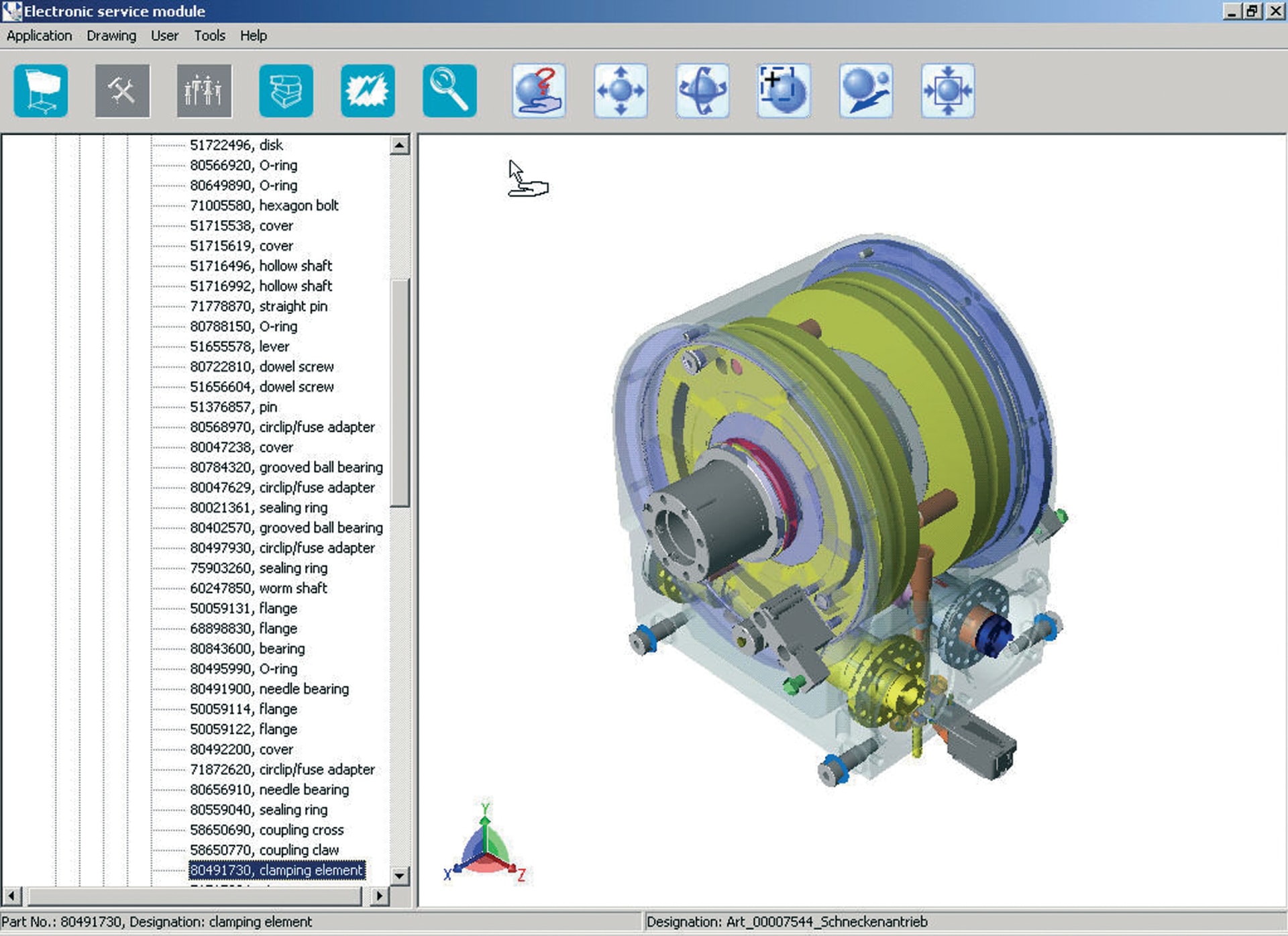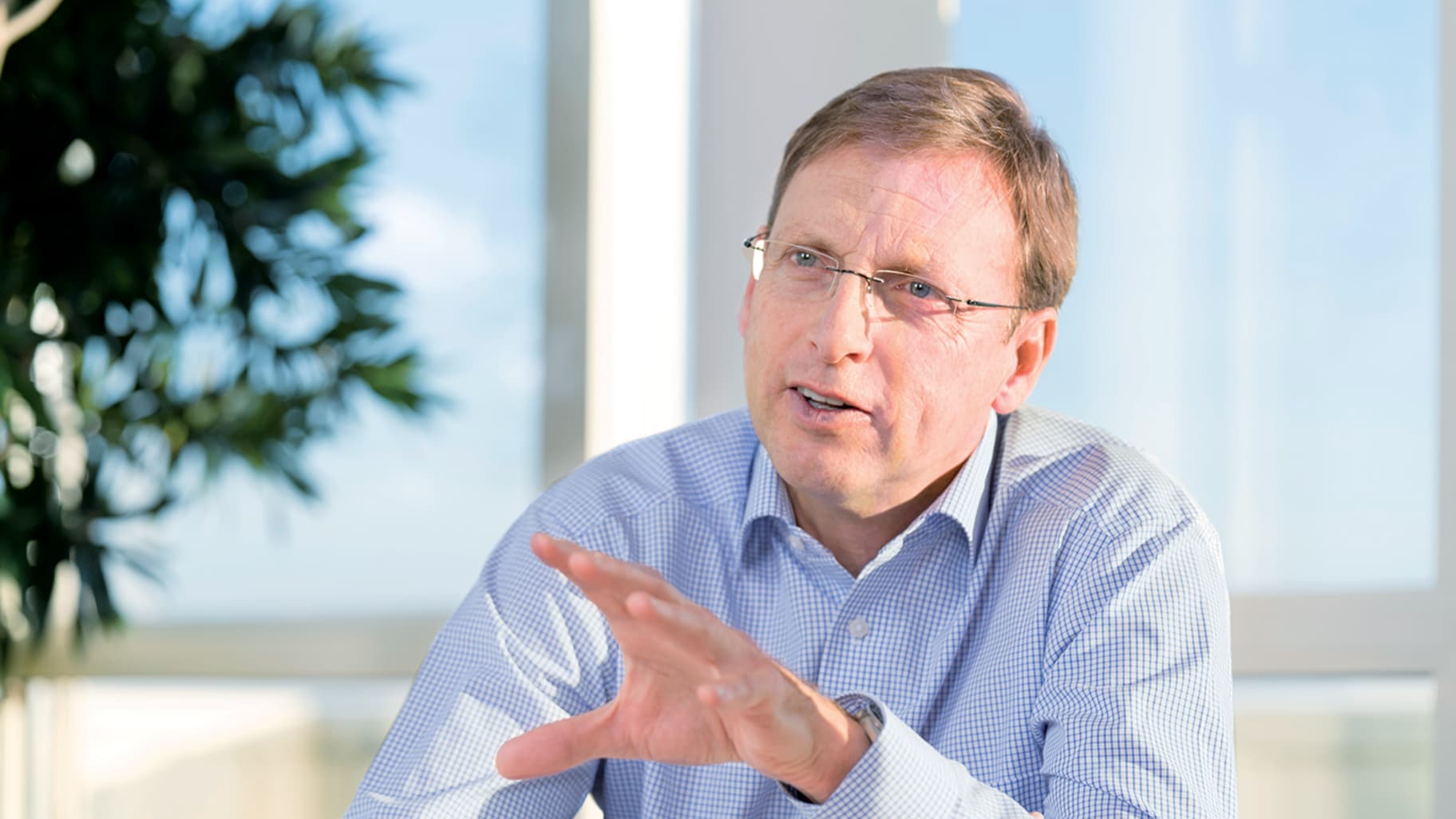Mr Kiessling, what do you believe makes for a perfect service offering for the customers of machine builders in the production sector?
I like to distinguish between what is absolutely mandatory and what goes beyond the basics. The mandatory programme includes services and a timely supply of spare parts, which ensures the machines’ technical availability. Any technical disturbances need to be reduced to a minimum – and in the future, the focus will also have to be increasingly placed on prevention.
Going beyond a mandatory service platform includes such things as optimisation of overall equipment effectiveness (OEE), where operator qualifications and processes in the system’s immediate environment also play an important role. In addition to the machine’s technical availability, OEE takes into account the number of products produced or packaged to meet quality requirements.
Additionally, service also has to support the adaptation of machines to new market requirements. This is a central aspect of long-term investment security. Specifically, this means that we at Schubert help with new tools or conversions to effectively enable new packaging formats.
What services do customers expect today? Have they become more discerning?
Our customers usually work in three-shift operation. This means that downtimes need to be avoided at all costs and that necessary maintenance work can only be carried out during planned production breaks. By networking the TLM machines via our Grips.world digital platform, we will be able to continuously monitor the machines’ performance as well as any deviations from the targeted status – thereby converting our service model from a reactive one to a preventive model. The objective is clearly to avoid any unscheduled downtime.
The Schubert service package is separated into five key areas.
How have expectations in terms of service in the field of machine building changed in recent years?
I believe that all machine builders are dealing with similar issues. Essentially, services are becoming increasingly important as a differentiating factor. Outstanding technology is one thing, but the qualifications, experience and commitment of all our employees who are in direct contact with customers, i.e. in service, in sales, as well as in assembly during commissioning, make a real difference.
When compared to other markets, do German machine builders have some catching up to do in terms of service?
I wouldn’t necessarily agree with that. I see an outstanding opportunity for the German machine building sector, in that we use digitalisation for our machines’ specific fields of application to our customers’ benefit – for new business models and also for greater efficiency. For instance, we know best which parameters are relevant to a packaging machine’s maximum performance and we can therefore closely monitor them. This is something that Google cannot do.
How do requirements differ in markets such as Europe, the USA or South America?
Automation is equally important in all industrialised markets, so the needs in North America, Europe or Japan are not significantly different. I see great potential, for example, for us to achieve more predictability and better results for our customers in these countries with service packages that are customised to their specific needs. In emerging markets, as in many countries in South America or Asia, manual work plays a greater role and therefore the willingness to deal with problems in the event of a disturbance tends to be more reactive.
How will customer service change through the digitalisation process?
Digitalisation opens up entirely new opportunities for our customers and for us. Via the networking of our machines across different sites, our customers have access to more transparency on performance data. The Schubert Databox in each machine allows continuous status monitoring and therefore prevents unscheduled downtimes. With the digital twin, we can simulate new applications and reduce development times. In the future, it is entirely conceivable that a customer may no longer regard packaging as a core process and would be interested in outsourcing to Schubert. New business models are also conceivable. The list goes on…

As a reliable partner, Schubert looks after TLM systems at customers' premises throughout their entire service life. With the Electronic Service Module - ESM, customers get an easy overview of spare parts and are reliably reminded of outstanding maintenance work.
Will personal customer contact become less important?
Certainly not. On the contrary, new technologies require that our customers and we develop new qualifications. We can only take advantage of potential benefits from within this team. Successful business relationships have always called for trust between people. This will not be changing in the future.



